The Three Spires, the Wild Empress and the Bavarians
‘Excuse me, could you tell us something about this church? We are from Germany, and…’
The organist, target of this question, looks a bit confused. He might be preparing for the service already, or he doesn’t know much about the history of the church. I also heard that here in Coventry people are still suspicious about Germans. Wouldn’t be a surprise after that horrible Blitz seventy-eight years ago. But it’s also true that forgiveness and reconciliation comes in a large part from churches and religious communities, so this shouldn’t play such a big role here. It might be that the organist is simple unprepared for tourist guiding. But that’s no issue, because I’m here, impolitely disturbing the conversation, rescuing the organist and the tourists at the same time:
‘Really, Germany?’, I ask in German. ‘Great! How can I help you?’
‘Oh, so you speak German!’
‘Of course!’
‘Why of course? We haven’t found anyone in the whole city!’
‘That’s the point!’ I’m smiling like the Cheshire Cat, I guess. ‘I miss speaking German so much here. I’m so glad I met you!’
They tell me that they are heading to Derby, and they have already visited the new cathedral today. They ask about me. No, I never lived in Germany, I’m not even Austrian, although I stayed there for quite long, but actually I was born in Hungary…
‘We aren’t Germans either’, they say.
‘What then?’
‘Bavarians.’
The lady looks a bit disappointed when I tell them that this is my second month in Coventry.
‘So you also don’t know too much about this church, do you? It seems to be Gothic…
‘Have you heard the story of the three spires?’ This is the best idea I have, I don’t want to let them down, even if I have no idea about when Holy Trinity was built, or anything else about its early history. And it works, the tourists look interested.
‘You know, when Coventry was bombed…’ Poor tourists, this might punch them on the face all the time here, but they said anyway that they are no Germans but Bavarians. ‘The cathedral was destroyed. The Christchurch was also destroyed. The Holy Trinity, as you can see, somehow survived…
They are nodding, the lady says one more time how old this church seems to be.
‘…but the spires of the three, the cathedral, the Holy Trinity and the Christchurch, stayed there despite all the bombing. People then came out of their refuges, and they saw the three spires upon the ruins, three shout of life upon the silent death, and they started to call them The Three Spires of Hope. You already saw the cathedral; the skeleton of the destroyed old one reaches a hand to the modern new one. The Christchurch was never restored, but the spire is still there. And this is the Holy Trinity, church of the city centre, with so much life and an active community. I joined the choir some weeks ago, this will be the first service where I sing.
They fall silent, reflecting on what I said. Then I realise something. There will be that Multicultural Big Lunch in the War Memorial Park today, and I chose my t-shirt for that…
‘Hey, look at my t-shirt with the German writing! You see? It says WILDE KAISERIN. Because you know, there is that skiing area in Austria, the Wilder Kaiser, and…
‘We live next to it!’, the man replies immediately.
‘Really?!’
‘We see the mountain from our home!’, the lady continues. ‘We almost live on the border, very close to Tyrol.’
‘Once I was doing a research in Tyrol.’
‘Where?’
‘At the Pitztaler Gletscher.’
‘What was the topic?’
‘The connection of waste and emotions.’ They make the same face that everyone does when I mention this. ‘Sounds weird, I know, but that is cultural anthropology for. And last year I also went to Tyrol very often. I worked on trains and they often ended in Innsbruck.’
‘What did you work on the trains?’
‘Serving coffee, drinks and food.’ I swear they are even more surprised than after the waste-and-emotions thing. ‘But it was only a temporary solution. I wanted to continue researching, but it was very hard for me to find a proper job or a secure PhD-funding in Vienna. There is only one university department of anthropology in Austria, the one where I obtained my MA. I also applied for scholarship in Germany, but it’s probably even harder to get one there… And then my life changed from one day to another when I got this great job here, in Coventry…’
A choir member joins the conversation. She tells me to go to the backside, it’s almost ten forty-five and we haven’t had a rehearsal yet. My new acquaintances disappear from one moment to another, I can’t even say a proper goodbye. I took a photo of them during the conversation, but I will never know where to send it. I make some mess in the backside, as I don’t have red uniform, nor that white thing they pull over it. They grab in every cabinet, finally find one in my size, quickly put it on me, bind it here, here’s a hole for that button.
I have never worn anything like this before. A stranger looks back to me in the mirror. An English choir singer.
We sing in English, but I desperately try to remember lyrics like Du sitzest zur Rechten Gottes, des Vaters, Herr, nimm unser Gebet. This little chat today made me feel dizzy, as if someone whirled a turbid lake in my soul, bringing even more mud and snail fossils up. I have this t-shirt on exactly on the day these people came here… They will see the Wilder Kaiser next week. When will I see the Wilder Kaiser again? And the Pitztal? And Innsbruck, and the Austrian Railway trains? And Vienna? And when will I hear Ehre sei Gott in der Höhe again?
The Lord bless you and keep you. Yes, you, dear Bavarian couple. Even if you were already on your way to Derby by the time we ended the service, I sang this song for you today.

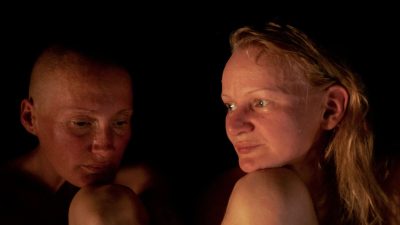
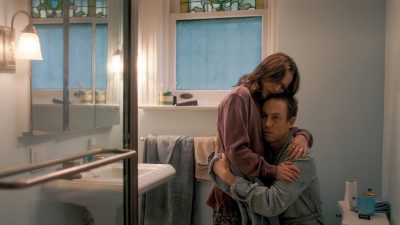

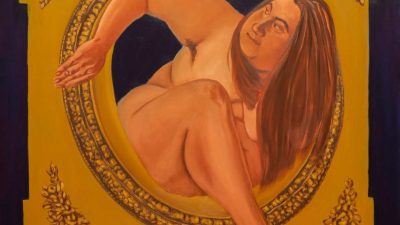




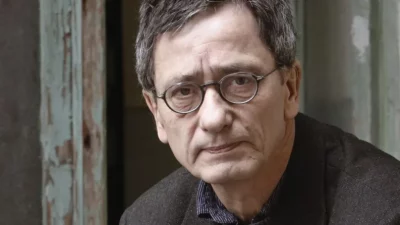



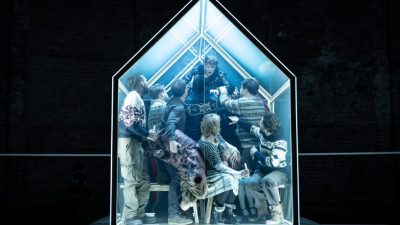
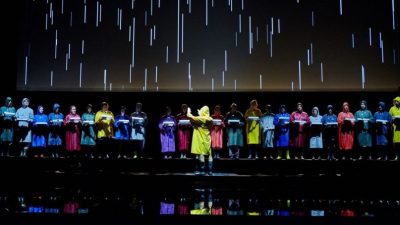


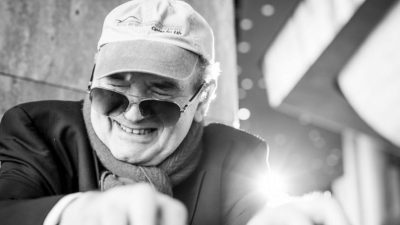


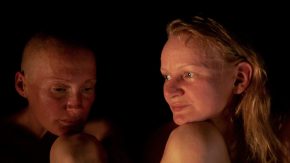


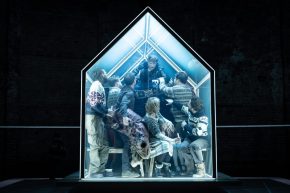
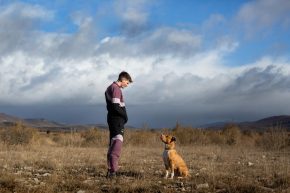
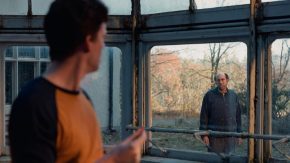
Comments